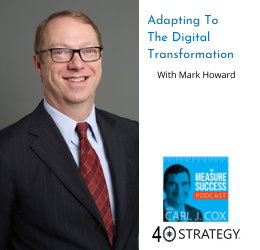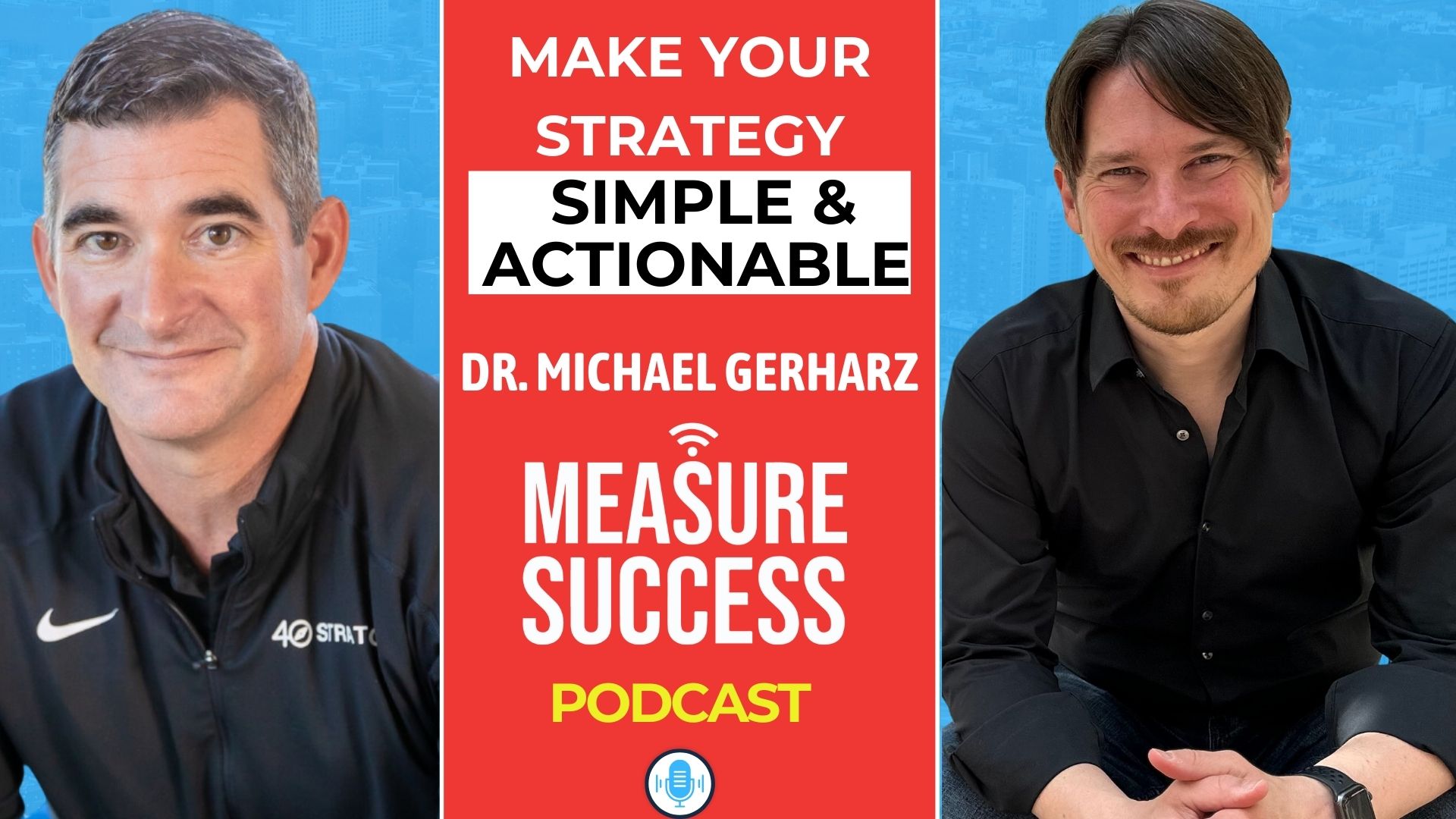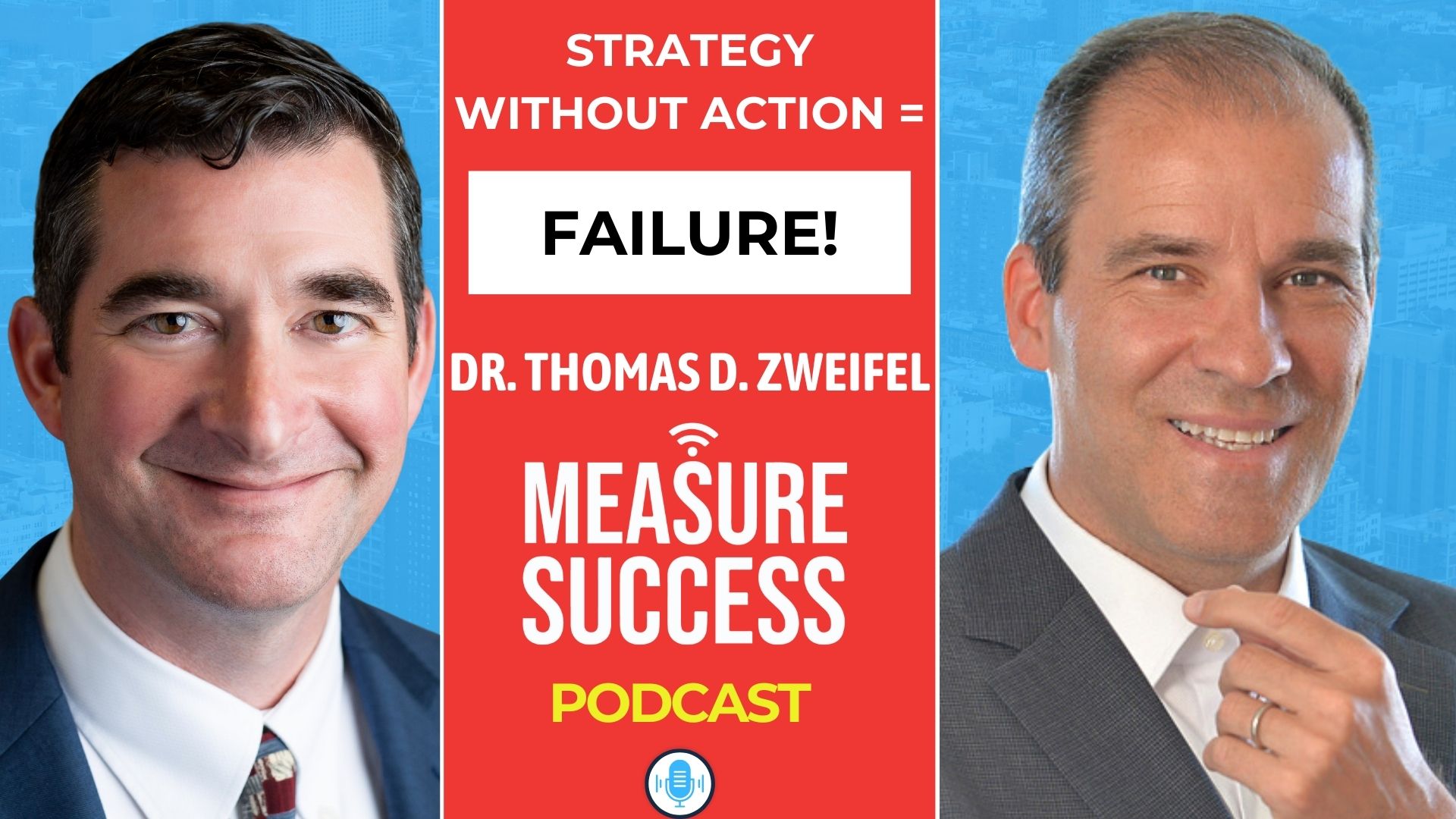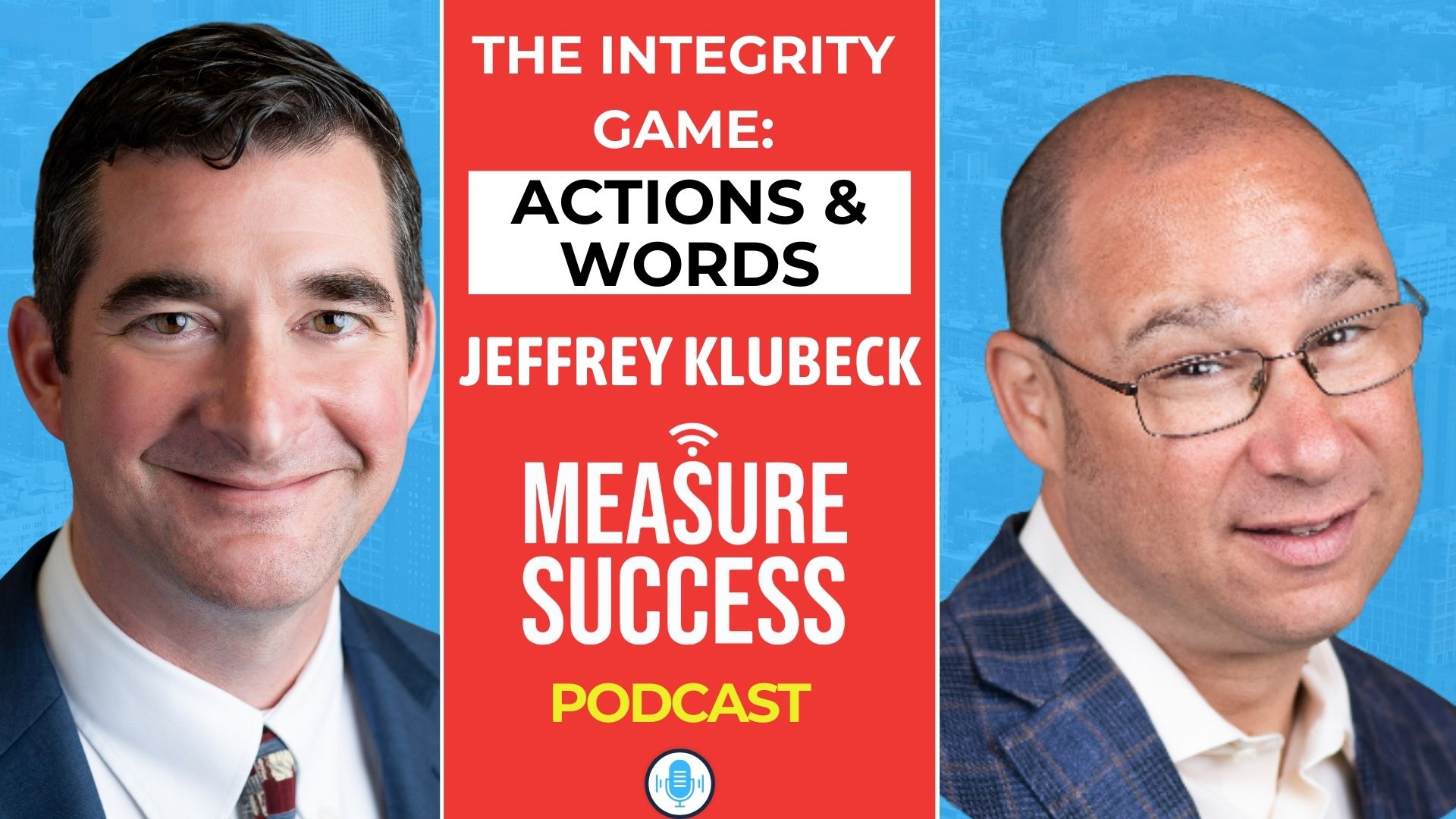
Mark has an MBA in finance from New York University and a bachelor’s degree in economics from Colby College. He currently serves on the Investment Committee for the Maine Community Foundation and is a Director and past President of the Fixed Income Analysts Society. He is also a Board Member and Treasurer of the Friends of IHES in France, a nonprofit organization supporting a world-leading research center focused on mathematics and theoretical physics. Mark has been recognized as part of Institutional Investor magazine’s All-America Fixed-Income Research Team 11 times, receiving seven first-place rankings.
Here’s a glimpse of what you’ll learn:
- Mark Howard describes his day-to-day work prior to the pandemic and explains how he’s transitioned to remote work
- What are the communication platforms BNP Paribas uses to stay connected?
- Mark explains the difficulties of generating trust and forming connections with clients while working remotely
- How does the bond market compare to the equity market?
- The social, economic, and environmental changes that are top of mind for Mark and the financial market
- Why Mark believes there will continue to be challenging times ahead
- Mark compares the impact of the 2008 recession, 9/11, Hurricane Sandy, and the pandemic
- What are the metrics that BNP Paribas uses for tracking success?
- How does Mark keep up his energy and cut out distractions to stay efficient?
In this episode…
The transition to remote work is an obstacle that many people had to move through over the last year. Every type of business faces its own specific challenges. However, when you work in an area where changes are consistently tracked, measured, analyzed, and planned for, sometimes adapting to a new normal can go a bit more smoothly.
This was definitely the case for Chartered Financial Analyst Mark Howard of BNP Paribas. Because his company already had the systems in place for remote work, the transition presented fewer technical issues than most. Instead of scrambling to figure out how to make things work, BNP Paribas employees were able to focus their energy on the higher-level challenges involved in a digital transformation and the shifting landscape of the financial market.
In this episode of the Measure Success Podcast, Carl J. Cox speaks with Mark Howard, Managing Director and Senior Multi-Asset Specialist at BNP Paribas. Mark discusses the platforms BNP Paribas uses to stay on top of remote communications, the difficulties of building trust with new clients remotely, and the present changes impacting the financial market. Mark also shares his experience of being in New York for the 2008 recession, 9/11, Hurricane Sandy, and the current pandemic. Stay tuned!
Resources Mentioned in this episode
- Mark Howard on LinkedIn
- Mark Howard’s email: mmjm2@gmail.com
- BNP Paribas
- Bloomberg Terminal
- Symphony
- Webex
- Zoom
- The Energy Project
- Tony Schwartz on LinkedIn
- Darren Hardy’s website
- Marion (Stouffer) H. on LinkedIn
- Bloomberg Television on YouTube
- Measure What Matters: How Google, Bono, and the Gates Foundation Rock the World with OKRs by John Doerr
- How to Win Friends & Influence People by Dale Carnegie
- The Compound Effect by Darren Hardy
- Accountable: The Rise of Citizen Capitalism by Michael O’Leary and Warren Valdmanis
- 40 Strategy
- Contact 40 Strategy
- Carl J. Cox on LinkedIn
Sponsor for this episode…
This episode is sponsored by 40 Strategy.
40 Strategy provides strategic planning and consulting to help organizations realize and achieve their dreams by creating and measuring KPIs for success.
Unfortunately, most organizations only spend 2% of their time—or about 40 hours per year—on building an effective strategy.
Increasing the success of those 40 hours is what 40 Strategy does because your success is their passion—and that’s why organizations look to them for guidance.
Not only does 40 Strategy help you craft and implement an effective strategy, but they’ll also work to facilitate teams with proven practices and help with your scenario planning.
Harvard research shows that you can triple your success when you use the right Key Performance Indicators. Who doesn’t want that?
If you have questions, you can reach out through their website or email them at catch@40strategy.com.
Episode Transcript
Intro 0:03
Welcome to the Measure Success Podcast where we feature top leaders on how they measure success in their business and life. Now, let’s learn from their experiences.
Carl J. Cox 0:18
Carl J. Cox here, and I’m the host of the Measure Success Podcast where I talk with top leaders about effective strategies that inspire success. This episode is brought to you by 40 Strategy. At 40 Strategy. We help provide strategic planning consulting to help organizations organizations realize and achieve their dreams. Mark, basically, we help companies and organizations create strategic plans and measure the right KPIs for success. Unfortunately, most organizations only spent about 2% of their time, or about the equivalent of 40 team hours per year, building an effective strategy. And I think I don’t know about you, Mark, but I think that’s pretty crazy. And so with that, at 40 Strategy, your success is our passion. That’s why organizations call on us to help not only do we come up with strategy, but we facilitate your teams with proven practices. Our research shows when you actually focus on the right key performance indicators, you can triple your success, and who wouldn’t want that. So emails today at catch@40strategy.com, or you can learn more at 40strategy.com. Now we normally have a shout out in the segment, and it’s gonna be a little bit different than normal. Before introducing today’s guests, I like to have a big thank you to my wife, Sarah, who’s been incredible and helping this entrepreneur of success and help drive and do the things of the ups and downs of that entrepreneurial roller coaster. So thank you for that. I also like to thank her cousin Marion and without Marion who lives in New York City who is now married to our guests, Mr. Mark Howard, we would never have this connection. And that’s how we have gotten to know each other over the years. And it’s always been in a family type relationship is going to be fun. We’re going to combine business and personal today. So thank you to Sarah and Marion. And Mark Howard is the Chartered Financial Analyst CFA managing director and senior asset specialist at BNP Paribas. He promotes the bank’s fundamental analysis, qualitative and quantitative models and differentiated insights for key clients. He also connects institutional clients with BNP researchers, product experts and traders to showcase their expertise. He also leads a new initiative to coordinate global markets, client engagement and Americans related to sustainable finance. Previously, Mark has been managing director and co head of global research and head of credit analyst at Barclays Capital for a period of five years. And for 18 years, Mark was with Lehman Brothers, where he was also managing director and global credit strategists responsible for the firm’s high grade yield, emerging market credit derivative strategy teams. Mark says a bit like the Tom Brady or LeBron James of fixed analysts, he’s been rated an institutional investor as an all American seven times seven of those times he’s actually been rated first place. He has earned his rights. And he learned his education from the MBA in finance from New York University. And he still lives in New York City today. He has a bachelor’s degree from Colby College. He also has a lot of charitable work and efforts that he does. He serves on the board and investment committees for the Maine Community Foundation. As a director and past president of the Fixed Income Analyst Society. He is also director of the Friends of IHES in France, and he also previously chartered chaired the University College London’s Friends and Family Alumni Association Board, and was an overseer of the Board of Trustees from Colby College for 2009-2015. And with all that, Mark, welcome to the Measure Success Podcast.
Mark Howard 3:42
Thank you, Carl. It’s a privilege and thank you to 40 Strategy for having me today. I’m looking forward to our discussion.
Carl J. Cox 3:48
Absolutely. So let’s start with this a little bit to help we rattle off a bunch of details about it. Tell me a little bit more about you and what what is your day-to-day organization in business look like? How you really know.
Mark Howard 4:04
So in a, in a pre-pandemic environment, Carl, I would sit on a trading desk, where billions of dollars of transactions are happening all around me and I as you aptly described in my biography, I work with our clients I know but investment bank, we serve as middlemen between corporate clients and institutional clients to buy and sell securities all day long. And I have the privilege of working with some of the world’s largest institutional investors, helping them think about their asset allocations around the world in all different types of investments. And I work closely with the different experts within our bank as well as outside resources to deliver kind of value added insight to those, those clients who make you know, very big, important decisions with our retirement funds or mutual funds, so on and so forth. So, so a lot of fun. But my normal day is, is very active, very, very aggressive in terms of the amount of activity going on. But it’s, it’s a ton of fun.
Carl J. Cox 5:12
That’s amazing. And so I’m curious now how you are now in this COVID world, you’ve been probably a year, you’ve not been in the office. So how you’ve been able to conduct all that business, and they’re in a remote setting. You know, it’s,
Mark Howard 5:28
it’s an interesting turn of events. But I’ve had the, I don’t know what to call it good fortune, but the fortune to have had to work remotely, after 911, after Hurricane Sandy. And even an event about two years ago, my building in New York where a helicopter landed on the roof, and there was a fire and unfortunately, a death and, but the building had to be evacuated. And so, and we couldn’t work there for a while. So our business has spent very aggressively on on backup, and resiliency, in order to deal with this. And it’s never been put to a bigger test. And then this past year, but it has been surprisingly seamless. You know, we have redundancy, we’ve got, you know, remote access. And you know, with web accessibility on so many different types of resources, we’re able to kind of toggle our technology fairly quickly, there are compliance issues, there are regulatory issues, that we had to either get waivers or patches to deal with it. But in terms of operational capability, it was surprisingly seamless.
Carl J. Cox 6:39
Wow. So are you regularly meeting with your teams on Zoom or some other type of teams or something like that on a regular basis to stay connected and stay on top of their research and their analysts they’re doing as well?
Mark Howard 6:52
Yeah, there are a number of communications platforms that we use. You know, we used to laugh about it, because we call it communications overload before the pandemic. But we now realize that it’s actually critical to have multiple abilities to not just to see and speak with people, but also to share data to share news and insight to the connect in other ways. So yeah, Bloomberg, for example, the Bloomberg Terminal is a very powerful resource that in my business, almost everybody uses at their IB chat functions, there are obviously different streaming functions. And then there are other platforms like Symphony, and Webex, and Zoom and so on, you Meet me in Microsoft Office, so are, we use all of them. And it’s so important to maintain that connectivity. In fact, we’re laughing the other day, how everybody wants to get back to the office, obviously, but one of the reasons is they’re tired of using Zoom, they’re tired of, you know, leaning on technology so much, they want to get back to, you know, actually having a cup of coffee with somebody or sitting in an office and talking things over. So it’s, it’s, it’s fascinating, but, you know, at least in our business, it’s been surprisingly seamless. And we’re lucky because we are a people business. And so we’ve been able to just do it, you know, other service businesses, and certainly manufacturing businesses have found it more difficult.
Carl J. Cox 8:24
So that’s, I don’t know, for you, for me, I I same thing I pivoted, I’ve been using Zoom for years and other type of technologies. And so for me, in a weird way, when people move to Zoom is a little bit of a blessing, because it’s like, oh, well, everyone else also knows how to use these tools as I communicate with them when I go, and I was like pulling teeth to actually get them to turn the webcam. So example right? Now just expect things that we normally do. But I’ve also found, I don’t get a little bit in depth, there’s the soft part of communication. And there’s that time in between meetings, where you actually gain additional insights, that you’re not going to pick up on an on a recorded Zoom as an example. That’s what I found is the gap. Have you found something similar? Or that element of where, you know, how do you overcome that challenge and obstacle with just communication and when you’re in a position of trust, and you’re in you’re working with people on a set amount of money, you’ve talked about? How do you help get those extra things or rates of trust in this, you know, telecom video
Mark Howard 9:30
perspective that we have? You bring up a great point, Carl, I haven’t given it a tremendous amount of thought, but particularly for younger people that don’t have pre existing relationships that they can rely on and, and build upon. It is very problematic. And I actually think there’s a broader issue, which are children who have grown up using devices and FaceTiming. And, and, and perhaps not developing the interpersonal connectivity that you just described, you know, as they become even more reliable On screen time, they may miss out on certain things. But what I’ve found similar to you less about the, you know, the time in the elevator, for example, is actually a time on the phone, I don’t spend as much time on the phone with people as I used to. And you’re exactly right there, there’s that, you know, that period of the beginning of the call the end of the call, you asked if somebody’s kids are doing or, you know, how their health is, or these other, you know, seemingly innocuous things, but they create connective tissue that can be built upon and, frankly, is very important to the experience of doing business. And that is lacking.
Carl J. Cox 10:39
So let me let me change this a little bit of the part of that you do. There’s the quote, unquote, the sexy part of the stock market, and, you know, all the things that people typically see in the headlines every day, you know, it’s it’s the GameStop, right, you know, these are the things that you can talk about it and gets us but the fact that you are in in fixed income, I think you told me beforehand is significantly larger, in terms of dollars in terms of the stock market, can you give the listener some perspective of how much larger in general perspective it is, and, and how much more money you’re dealing with, compared to the thing that we typically see in the day to day headlines?
[continue to next page]













